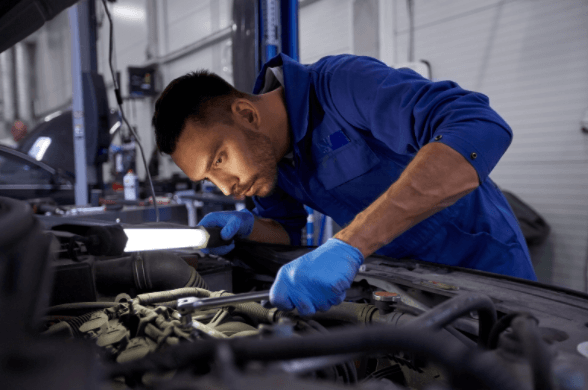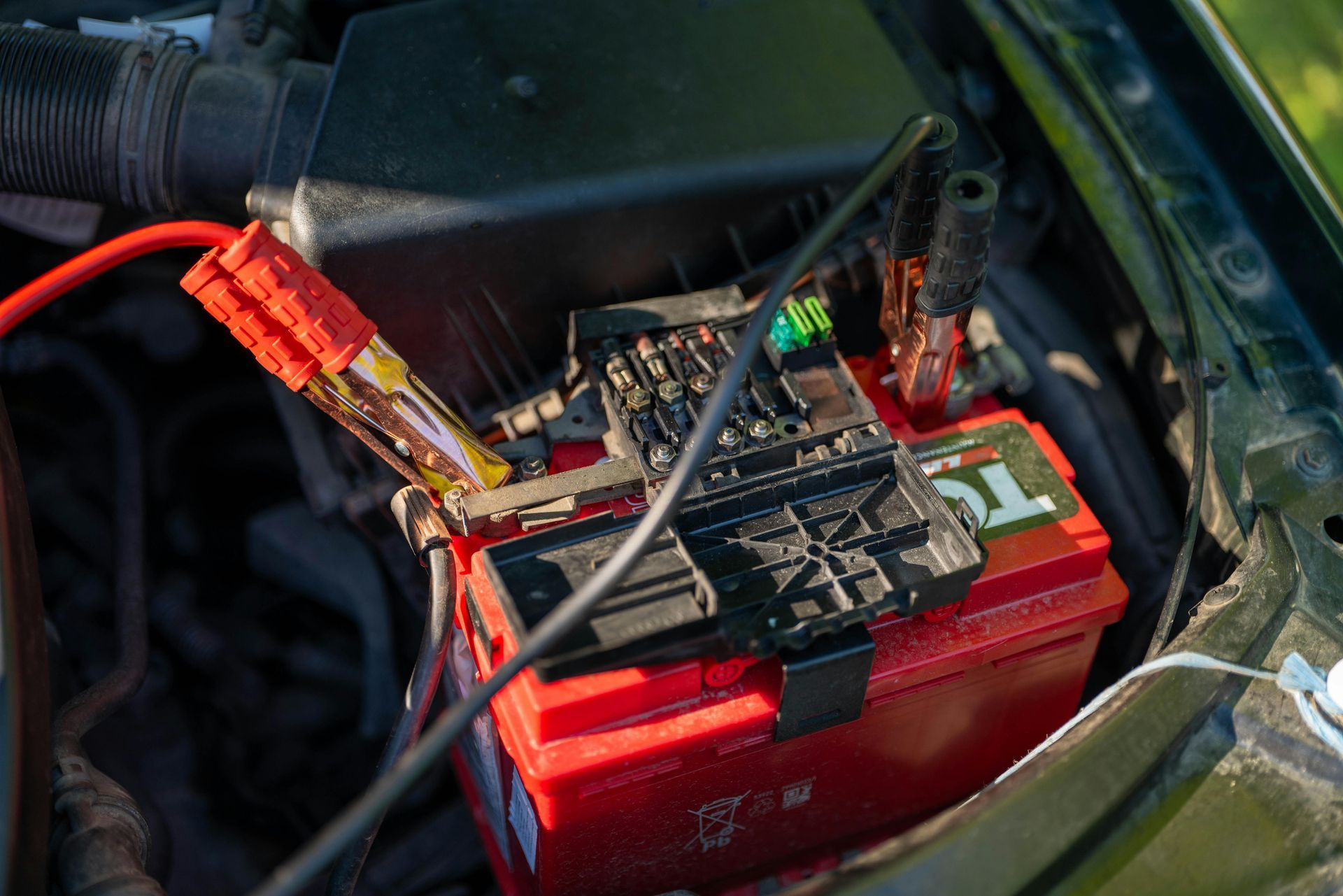9 Steps to Getting Your Car Ready for Vacation
Auto Shops Located in: Chapel Hill, Durham, Taleigh, Apex, and Cary North Carolina

As schools are released for the summer and the weather continues heating up, you may be packing your bags for a road trip or a destination vacation. Before you hit the road, you will need to ensure that your vehicle is ready to go. Here is a look at nine checks and steps you may need to help your vehicle handle the long-distance journey.
Step 1: Check Your Tire Pressure
Tire pressure is essential to your vehicle safety, handling, tire protection, and fuel economy. Setting off on a road trip with under- or over-inflated tires could lead to a wide number of problems. To do this, you will need a tire pressure gauge. You can view your ideal PSI (tire pressure levels) within your driver-side door panel and compare them with your gauge reading. If you need a hand managing your tire pressure, bring it to a mechanic. You can get your tire pressure checked and refilled for free with certain mechanic services, such as oil changes.
Step 2: Make Sure Your Oil Change is Up-To-Date
Engine oil changes are essential for keeping your engine protected from heat and damage. Skipping this affordable service could cost you thousands in engine repair or replacement. If you are due for an oil change, you’ll need to get this done before your road trip. Otherwise, the stress of a long-distance journey without the help of adequate engine oil could spell trouble for your vehicle.
Step 3: Check Your Cabin and Engine Air Filters
Summer vacations often align with the pollen and allergy seasons. This pollen can help quickly clog your engine and cabin air filters, along with dust, dirt, debris, and other contaminants.
- Your cabin air filter cleans the air you breathe inside your car as it circulates through your AC system. Clogged cabin filters are not only ineffective at cleaning the air—but they also create stress for your car’s AC system, leading to costly damage.
- Engine air filters keep dust, dirt, contaminants, and debris away from your engine. When these filters become clogged, they can restrict the airflow in your engine. This issue creates combustion problems and puts your engine at risk.
If you’re not sure how to check or change your air filters, bring your vehicle to an auto mechanic for help.
Step 4: Check Vehicle Light Bulbs
It is always a good idea to regularly check your vehicle lights. Dead bulbs can earn you a ticket on the road—which is sure to put a damper on your vacation. They can also cause you to fail your annual safety inspection. Even more seriously, they can create serious safety hazards on the road. Before taking off for your next vacation, take a moment to check:
- Headlight functioning
- Turn signal functioning
- Brake light functioning
Thankfully, if you find one of your lights not working, it can often be repaired with a vehicle light bulb replacement.
Step 5: Battery Check
When you are getting your car ready for vacation, this often involves preparing it to drive you to your destination. However, what if you are going out of town without your car? How do you prepare it for prolonged sitting? The biggest concern here is your battery. Batteries are likely to die when left sitting for too long. Before heading out on your vacation, see if you can get a friend or neighbor to drive your vehicle around the block (or perhaps a little further) once a week. Here is everything you need to know about leaving your car sitting.
Before a road trip, you should check your battery for corrosion, terminal end issues, and signs that your vehicle is having a hard time starting. You should also pack a fully-charged battery jump-starter or a set of cables—just in case.
Step 6: Vehicle Air Conditioning Checks
The last thing you need on during a long summer drive is a broken air conditioning system. When preparing for your trip, check to make sure your vents are blowing cool and comfortable air. If not, this is often a sign of low refrigerant. In this case, an AC recharge service will get your air conditioner working for your trip. Unfortunately, refrigerant leaks are often the sign of a deeper system issue that may require additional service—but you can worry about that after your vacation.
Step 7: Measure Tire Tread Depth
Before setting out on a road trip, you will want to check your tire tread depth to ensure you can start, stop, and handle your vehicle effectively. This requires at least 2/32 inch tread depth. You can check this using your tread depth indicator bars or the penny test. Learn more in our guide to checking your tire tread depth.
It might be easy to assume that if one of your tires is fine, all of your tires are fine. However, it is essential you check all four tires. Your tires often wear unevenly, which is why regular tire rotations are necessary. You will also experience disproportionately uneven wear if your wheels are out of alignment. For example, poorly aligned vehicles can leave you with three perfectly healthy tires and one completely bare tire.
Step 8: Fluid Level Check
Your vehicle relies on a wide variety of engine fluids to keep it running. This includes transmission fluid, brake fluid, radiator fluid (coolant), power steering fluid, and so much more. Every one of these is essential for your vehicle’s safety, health, and functioning. Before your vacation, take a moment to check your engine fluid quality and levels. If any of your engine fluids are contaminated or depleted, they may need a full maintenance flush and replenishment.
Step 9: Brake Check
While you may be eager to go, go, go when it comes to your vacation—it is also important to make sure your vehicle is ready to stop. Take a moment to check your braking system—specifically your brake pads and rotors. Brake pads are made a fictitious material that gradually wears away every time you slow or stop your vehicle. Your brake pads press against your metal rotors, which can be bent and warped by the braking friction. On average, you will need brake pad replacement every 40,000-50,000 miles and rotor replacement as necessary.
Chapel Hill Tire Trip Checks
Are you wondering if your vehicle is ready to handle your next vacation or road trip? Bring it by Chapel Hill Tire for a trip check. This service is designed to ensure you have everything your vehicle needs for a successful trip. You can even check out our promotions page for coupons, deals, and discounts. Make your appointment here online at one of our 9 Triangle-area mechanic locations across Raleigh, Durham, Apex, Chapel Hill, and Carrboro today!















